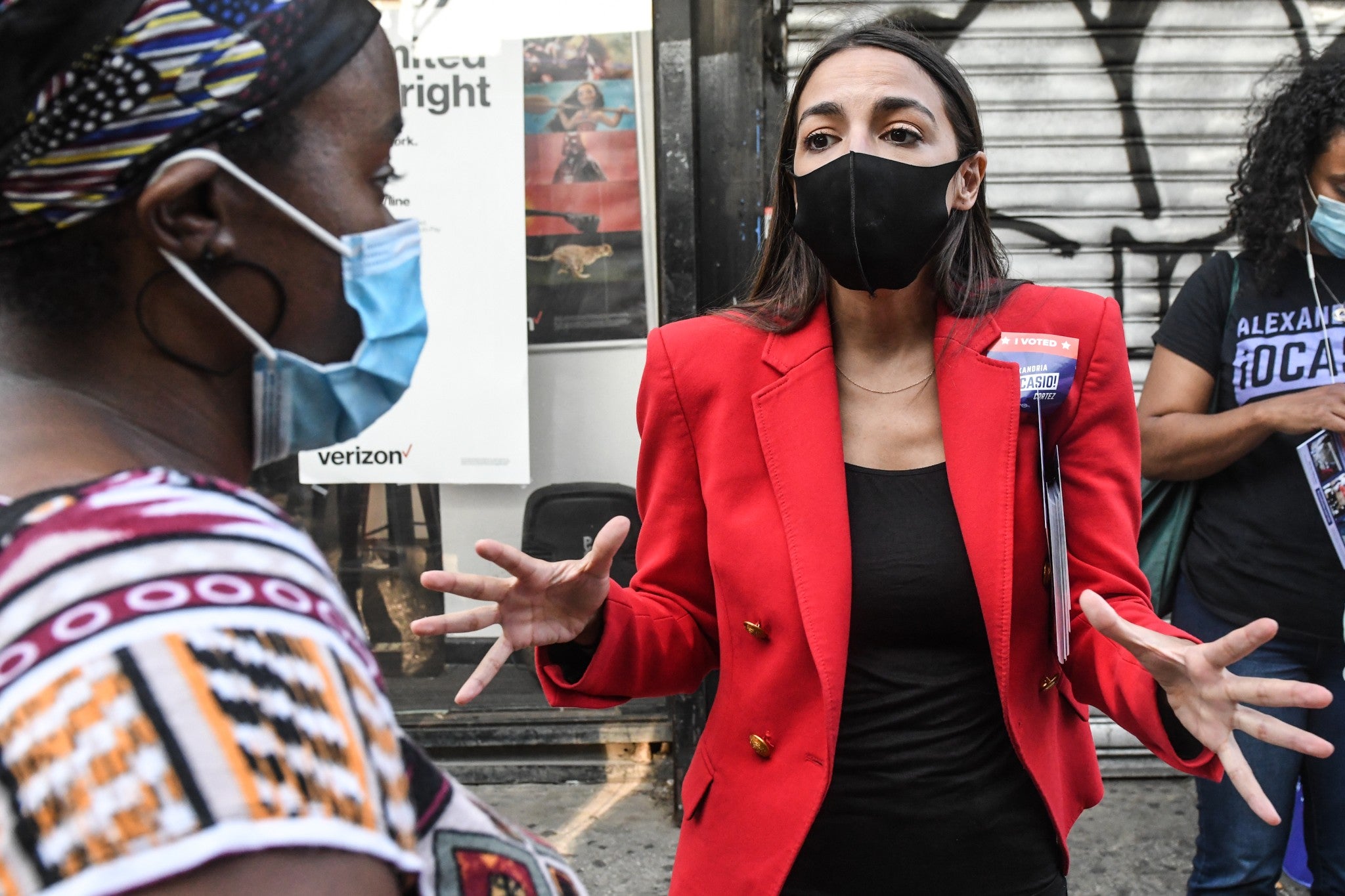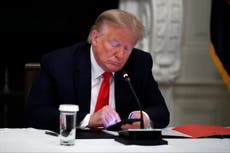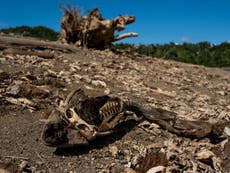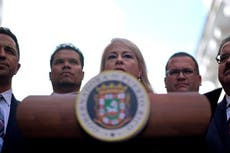Before we push for statehood, Puerto Ricans need to think about what we're getting ourselves into
Those of us facing the status question in 2020, after Donald Trump, are not the same voters we were in 2017

I moved to New York City from Puerto Rico in 2016, a year before the island was ravaged by hurricanes Irma and María. Like many other Puerto Ricans living on the mainland, I suffered from the effects of a neglectful and disinterested government. When we asked for help from other countries, they shut us down. When we required life-saving necessities, they threw paper towels at us for a photo op.
Through it all, a debate has persisted over whether the island should become a state. Puerto Rico is currently considered an “unincorporated territory,” meaning that we are US citizens and our land is owned and operated by the US government, but we receive none of the benefits from being a state, like having representation in Congress. That debate was reignited last week when Congress passed statehood for Washington DC in a historic vote.
There’s extraordinarily united support for Puerto Rican statehood, even at a time when the nation feels more divided than ever. Two out of three Americans support statehood for Puerto Rico, according to a 2019 poll. Celebrities and activists have thrown their support behind the issue, with Andrew Yang tweeting last month, “Puerto Rico should be a state. Pass it on.” “Do Puerto Rico next,” Dan Savage concurred, in response to the news about DC.
It's great that so many public figures are calling for Puerto Rican statehood; but this is a decision that must be made by and for the Puerto Rican people themselves. The island should be afforded an opportunity to explore and debate the significant pros and cons involved in becoming a state before making a deal. After all, Puerto Ricans are no strangers to the mishandling of public crises at the hands of their local and federal government.
The island’s economy has been on the brink of collapse for decades, with reckless government spending and an intricate web of corruption to blame. The local government incurred debt exceeding $73 billion by 2015, when then-Governor Alejandro García Padilla gave a statement to the New York Times saying that Puerto Rico’s public debt was unpayable. The island’s status as an unincorporated territory of the United States made it impossible for its government to declare bankruptcy, and thus a default on its debts would send the island into a spiral comparable to the debt crisis seen in Greece.
The federal government stepped in in 2016, passing a law called Puerto Rico’s Oversight, Management and Economic Stability Act, or PROMESA. The law created a board to effectively manage the entirety of the island’s finances, which became known colloquially as “La Junta.” The law provides near-total authority to the board, allowing it to overrule any decision made by local elected officials on the island. Members of La Junta are appointed by the president, without needing any consent from the Senate, the Puerto Rican government or even the citizens who live on the island.
All this has led to a great deal of apathy and mistrust among us Puerto Ricans when it comes to both local and national politics. While we’ve had the constitutional right to vote for our local officials since 1952, the 2016 institution of the fiscal oversight board by the federal government left many of us angry at the suppression it represents.
Puerto Ricans living on the island will face a non-binding referendum about the political status of the island come November. This vote will mark the third referendum in recent years: in 2012, a majority of voters supported the idea of statehood. In June 2017, another non-binding referendum was met with low turnout and great apathy from the Puerto Rican voters — and yet a majority of Puerto Ricans who participated in the ballot supported statehood once again.
Those of us facing the political status question in 2020 are not the same voters we were in 2017.
In 2019, we saw Puerto Ricans on the island rising up against their corrupt government. They held protests in Old San Juan demanding the resignation of Former Governor Ricardo Roselló, and demanding La Junta be ousted with him. While the governor has since resigned — a moment that I remember watching in disbelief and amazement from a bar in Brooklyn — the board is very much still alive, punishing residents of the island with violent austerity measures like cuts to pensions, healthcare and education.
In a recent decision affirming the appointments of La Junta, the Supreme Court described the board’s power as a “wide-ranging, veto-free authority over Puerto Rico.” That means board members can cancel or oppose any laws or measures passed by constitutionally elected government officials on the island. Puerto Ricans do not get a say in what La Junta decides for the island and its residents — not even through their elected officials. Even the governor of Puerto Rico will be relegated to a non-voting role within the board. The Supreme Court also declined a request to overturn the Insular Cases, which are a series of legal decisions that affirmed the colonial power of the United States over the territories they acquired after the Spanish-American War.
Had we known the board would turn into a snake that strangles the necks of Puerto Ricans everywhere, we would have fought with all our might to stop it from taking over our island. We were promised help, and once again given nothing close to it. That’s why Puerto Ricans deserve and demand to be at the center of the debate over statehood.
On September 24, 2019, Rep.Alexandria Ocasio-Cortez, Sen. Bernie Sanders and 11 other members of Congress sent a letter to La Junta demanding that they listen to everyday Puerto Ricans. They asked La Junta to reverse their crippling austerity measures and also requested that the conflict of interest between the board members and their consultants were addressed.
It’s time for all Puerto Ricans to take control of their fates and their island. I want to see Puerto Ricans in the diaspora using their voices and registering to vote here on the mainland. I want so badly for each and every one of us to demand justice for Puerto Rico, to reach out to our local representatives and political candidates and not to stop until we get fair and just government.
Before buying into statehood, we need to know exactly what we’re buying into as Puerto Ricans. We need a public audit of the Puerto Rican debt that will lead to accountability from those responsible for a fiscal crisis that’s led to the closing of public schools all over the island, the public health crisis and the current dismantling of public pensions.
We must demand that the federal government stop exerting its political power over Puerto Rico, regardless of our own decisions. We must uplift Puerto Rican voices and count their experiences as people into the decision-making process. Before we can even talk about statehood, we must know that we are protected and heard by all of our representatives, whether they are from federal or local bodies of government.
Lawmakers and public figures should not only advocate for Puerto Rico to become a state, but also for the island’s debt to be audited with full transparency and accountability to the Puerto Rican people. Then, and only then, should Puerto Ricans and their allies move to demand statehood.





Join our commenting forum
Join thought-provoking conversations, follow other Independent readers and see their replies